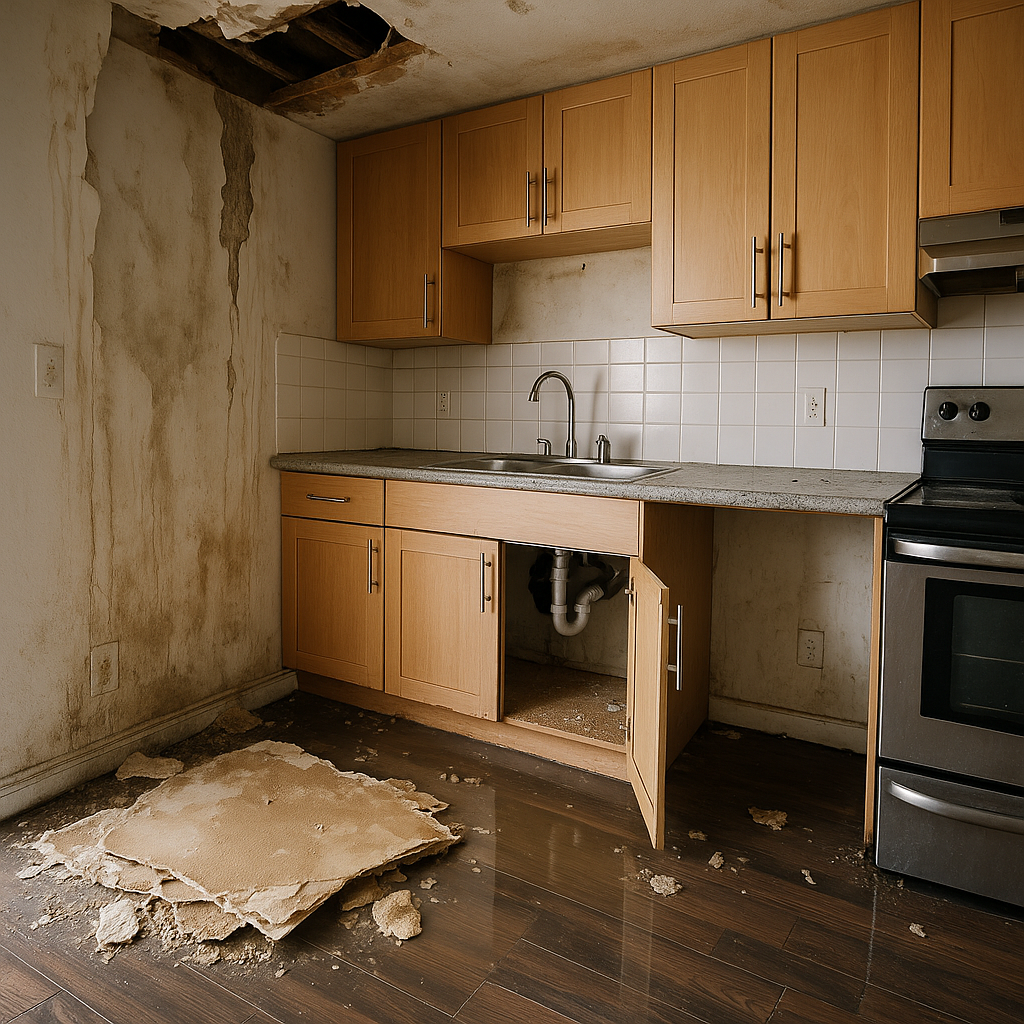How Condo Owners Can Reduce Risks and Protect Their Property
Common Risks Faced by Condo Owners
Owning a condo means sharing much more than just a roof or hallway with others—it also means sharing risks that may not always be within your control. For instance, plumbing and electrical issues originating in another unit can create water leaks or electrical failures that travel between walls, affecting several owners before a problem is even noticed. Fire is another primary concern in multi-unit dwellings; a kitchen fire in a neighboring condo can quickly threaten lives and damage property throughout the stack of units. In addition to the challenges of shared infrastructure, condo owners must be vigilant against theft and vandalism, as shared entryways and amenities can sometimes result in reduced individual control over security. Owners in coastal or storm-prone regions may also face an added risk from flooding or hurricanes, with damages that can extend well beyond their unit. For guidance on how to mitigate or respond to these risks, reaching out to Miami condo insurance experts offers valuable, region-specific advice you can trust, especially when local risks are heightened by climate or location. It’s essential for condo owners to thoroughly review their master HOA policy and understand what it covers and what it does not. Supplemental individual condo insurance, often referred to as an HO6 policy, can fill in the gaps to protect personal property and interior unit features. Taking proactive steps now can help prevent significant financial losses down the line.
Why Regular Maintenance Matters
While many might assume that condo living means less responsibility for repairs, owners are still accountable for maintaining the interior of their units, and doing so is essential for risk reduction. For example, even something as small as a slow-draining sink or a loosened seal around a window can lead to bigger messes over time, such as water leaks, mildew, or mold, each potentially resulting in hefty repair bills and insurance headaches.
Consider a quarterly checklist: inspect all plumbing under sinks for leaks, replace HVAC and air filter systems as recommended, and schedule annual servicing for appliances such as water heaters and dishwashers. Simple habits—such as cleaning out dryer vents, vacuuming refrigerator coils, and checking that smoke and carbon monoxide detectors are always operational—go a long way in preventing common causes of fire or water damage. Keeping an up-to-date maintenance log can also be invaluable when filing insurance claims, as it proves you’re a responsible owner who has minimized preventable problems. Some insurers reward this diligence with premium discounts, viewing well-maintained homes as lower risk.
How Working with Your Condo Association Helps
An effective condo association acts as a safety net for the building’s collective well-being; however, owners must participate actively to reap the benefits. Communicating with your association by reading newsletters, responding to notices, and attending regular meetings ensures you’re immediately aware of significant repairs or security upgrades that are scheduled. For example, if the association schedules a roof replacement or major plumbing upgrade, staying informed helps you prepare your unit and avoid disruption or water intrusion. Rules regarding renovations, balcony use, or pet ownership are intended not only to maintain order but also to prevent risks and liabilities that affect residents. Some associations offer educational sessions on maintenance or disaster response, and many have online portals for reporting issues quickly. When all owners work together with their management company, everyone’s unit (and investment) is better protected against emergencies and shared hazards. Resources like U.S. News’ guide on choosing between a condo and a house emphasize the importance of evaluating association involvement as part of the decision-making process, especially since your experience as a condo owner will be heavily shaped by how the community is managed.
Key Aspects of Condo Insurance Coverage
Insurance for condo owners is highly specialized: a personal HO-6 policy typically covers everything “walls-in”—from drywall, fixtures, and flooring to appliances and personal belongings. Meanwhile, the association’s master policy covers the structural elements and shared common areas, like lobbies, elevators, roofs, and recreational amenities. The critical first step is to thoroughly review your association’s bylaws and master policy to define precisely what you’re responsible for. Often, kitchen appliances, custom cabinetry, or hardwood floors may not be covered by the building’s insurance, making personal coverage essential.
According to NerdWallet’s guide on condo (HO-6) insurance, these policies typically cover fire, theft, certain types of water damage, and liability for accidents. However, disasters such as earthquakes and floods often require separate, explicit coverage. If you’ve recently remodeled or purchased high-value items, such as jewelry or electronics, consider purchasing endorsements or “riders” to close the gaps in standard coverage. Another overlooked element is coverage for temporary living expenses—should you be displaced due to a covered claim, your insurance may help pay for lodging and meals until repairs are complete. Reviewing all policies annually, especially after any significant purchase or renovation, is a sound approach to ensure your protection remains robust.
Tips to Avoid Costly Pitfalls
- Read Policies Carefully: Insurance documents can be lengthy and filled with unfamiliar terminology. Take the time to read them, and don’t be afraid to ask your provider about exclusions, specific coverage limits, and key scenarios that may be relevant to you. The extra effort can save significant stress in the event of a claim.
- Inventory Your Belongings: Take photographs of your possessions, keep receipts for expensive purchases, and update this list annually. If you ever need to file a claim for theft or fire, a thorough inventory streamlines the claims process and increases your chance of full reimbursement.
- Regular Reviews: Insurance needs evolve. Major life events (like getting married, downsizing, or renovating) make it vital to reevaluate your policies so you’re neither under- nor over-insured.
- Know the Claims Process: Gather documentation before an emergency strikes. Knowing what’s expected of you—and having all necessary records at hand—can make the difference between a swift payout and a drawn-out ordeal.
Avoiding common pitfalls really comes down to diligence and education. Leveraging reputable sources and reviewing your policy annually means fewer surprises and better peace of mind.
Deductibles and Loss Assessment Explained
Selecting the right deductible for your condo insurance policy plays a significant role in balancing your monthly budget with preparedness for emergencies. Opting for a lower deductible means you’ll pay less out-of-pocket if you ever need to make a claim, but your regular premiums will be higher. If you’re confident in your ability to cover emergency costs, a higher deductible can make sense and will often translate to more affordable premiums.
Another crucial element is loss assessment coverage. Suppose a hurricane or fire damages shared property and the repairs exceed the master policy’s limit: the association may levy a special assessment, splitting the cost among all owners. These assessments can easily land in the thousands, and not all HO-6 policies cover them by default. Ensure your policy includes enough loss assessment protection in relation to your building’s age, location, and replacement costs—a slight adjustment to your premium can save you from an overwhelming bill later.
Current Trends in Condo Protection
The world of condo insurance is evolving rapidly in response to climate events, increasing building costs, and changing regulations. According to recent market data, premiums have experienced significant spikes, sometimes rising by over 15% in high-risk or aging properties. Owners are increasingly turning to technology—like smart water leak sensors, app-controlled thermostats, and upgraded alarm systems—to limit loss incidents and qualify for discounts on their insurance.
Community-level improvements are also on the rise, with many associations adopting stricter rules about routine maintenance, fire prevention, and weatherproofing. Staying up-to-date on insurance reforms and trends is crucial, especially since regions prone to hurricanes, floods, or wildfires are seeing more stringent insurance requirements and fewer carrier options.
Frequently Asked Questions
- Should condo owners consider flood insurance?
- Absolutely—condo owners in floodplains, coastal areas, or locations with frequent heavy rainfall should always consider a standalone flood policy as standard condo policies rarely cover this risk.
- Do standard policies always cover valuables?
- Most HO-6 policies cover personal property, but special items (like jewelry, artwork, or rare collectibles) may exceed base policy limits. Riders or endorsements often fill the gap.
- How can insurance premiums be reduced?
- Install home monitoring devices, increase your deductible, improve home security, or bundle with other insurance products. Ask your provider about available discounts.
- What happens if a neighbor’s condo damages mine?
- Coordination between your insurance provider and the neighbor’s policy is key. Immediate communication and documentation (like photos and written statements) help resolve these instances smoothly.\
Conclusion
Owning a condo comes with unique responsibilities and risks that require a proactive and informed approach. From understanding your HO-6 insurance policy to maintaining your unit and engaging with your condo association, every effort you make contributes to protecting your home and investment. By staying vigilant with maintenance, choosing the right coverage, and adapting to current insurance trends, you can minimize unexpected costs and ensure long-term peace of mind in your condo lifestyle.
FOLLOW US ON FACEBOOK
RECENT POSTS
TAGS
About The Memory Hole
You've reached TheMemoryHole.org! A diverse lifestyle blog with content on a variety of different topics to help you define and live the life you want to live! Thanks for stopping by!
Copyright © The Memory Hole. All rights reserved.









